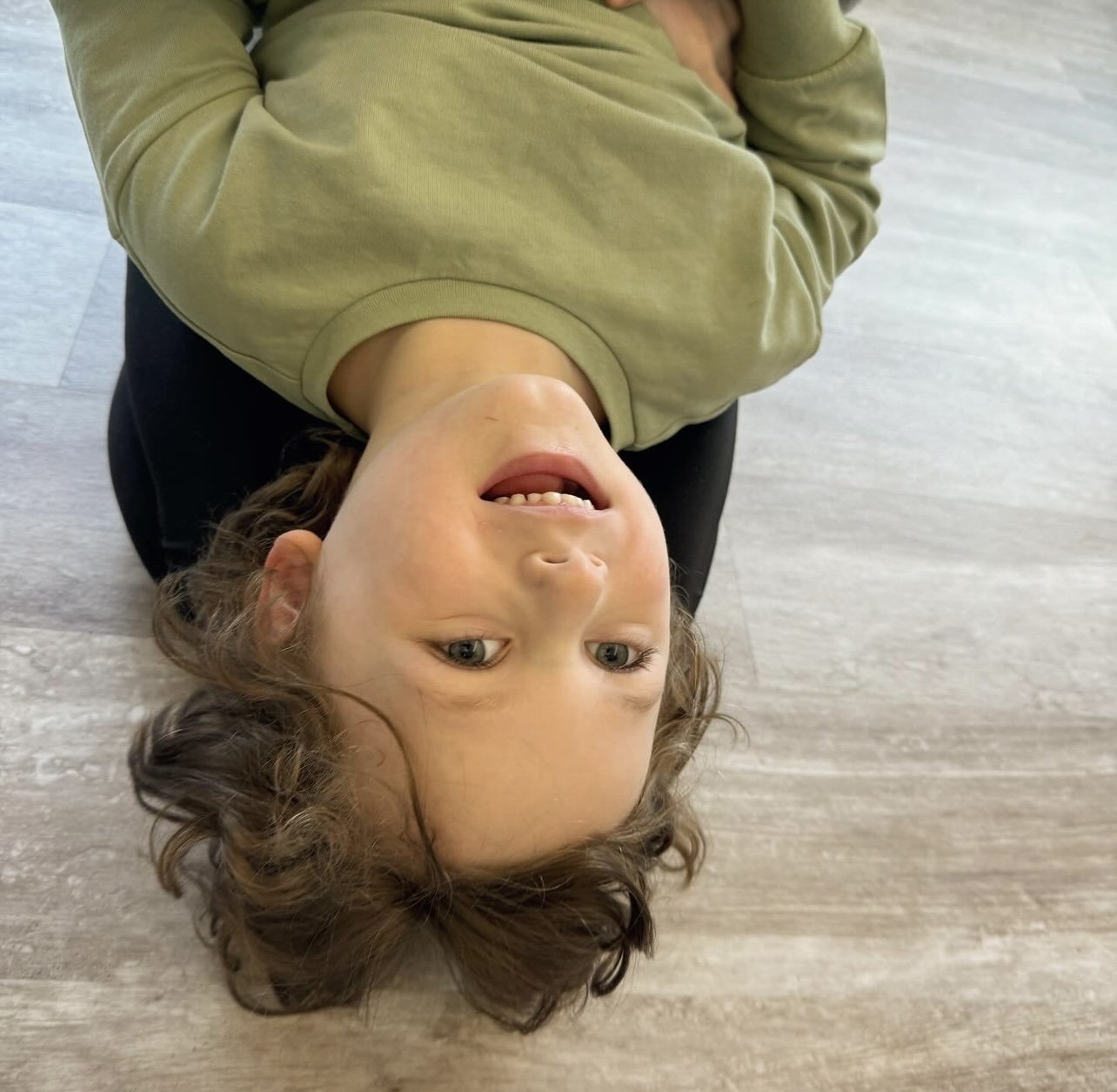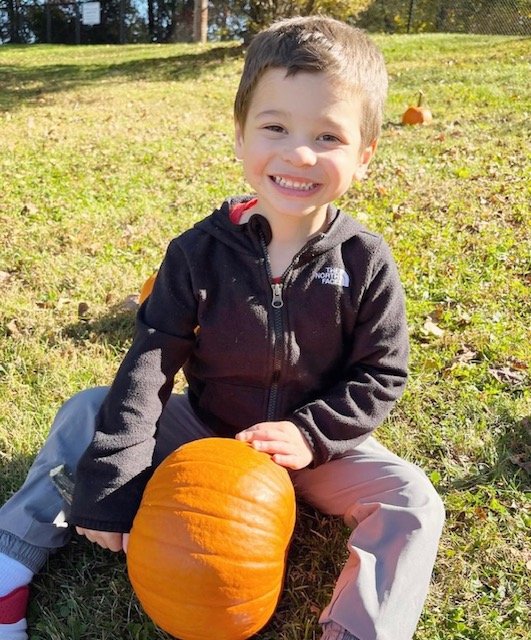Applied Behavior Analysis (ABA) Therapy
What is ABA Therapy?
Applied Behavior Analysis (ABA) is "the process of systematically applying interventions based upon the principles of learning theory to improve socially significant behaviors to a meaningful degree, and to demonstrate that the interventions employed are responsible for the improvement in behavior.“
ABA breaks down complex skills into smaller, achievable steps and focus on the basic principles of learning to increase appropriate behaviors and decrease inappropriate ones. ABA is a structured methodology that analyzes behavior and tracks it in a meaningful way. ABA is the only evidence-based practice proven to produce meaningful, positive change in the skill and behavior repertoires of individuals with autism and developmental disabilities.
How do I know if my child would benefit from ABA Therapy?
ABA therapy is most commonly associated with autism. When a child receives an autism diagnosis, the developmental pediatrician will recommend beginning (or continuing) ABA services.
However, ABA can be utilized for any child to work on any behavior. Every behavior serves a function; every behavior is a form of communication.
ABA therapy has been shown to promote improvements in communication, play, social relationships, attending, school functioning, and self care (for more information click here).
If your child struggles with communication, tantrum behavior, social interactions, pre-academic skills, following directions, attending, playing (independently and/or with others), participating in daily routines, flexibility in play, going out into the community, or tolerating changes in routines, ABA therapy can be incredibly beneficial.
Isn't ABA rigid and boring?
Not with us! Our ABA therapy looks like fun!
We combine multiple methods of ABA therapy to ensure the best outcomes for your child. Depending on the child we may work on sequencing activities, flexibility in play, engaging in gross motor activities, developing pretend play and critical thinking skills, interacting with other children in peer sessions, or following directions.
ABA therapy programs mimic the various unstructured scenarios your child will experience throughout their day and helps prepare them to engage appropriately. Essentially, we teach and practice during the calm so we can utilize the skill during the chaos.
Why don't you do in-home services?
We get asked this a lot!
Believe in Me has chosen to focus on center-based services in order to offer as many social opportunities as possible. When providing in-home services, we found our children were not able to obtain the social interactions and practice they needed, a crucial aspect of successful intervention for individuals with autism (for more information, click here and here). When working in the center, our therapists and children have the option to ask friends to play, join each other for snack, or pop in to engage in a gross motor game. These opportunities are not readily available when working in home-based therapy.
Research has also shown center-based services to be more effective in producing meaningful and significant gains (for more information, click here). Children who received center-based treatments obtained more focused learning time than home-based sessions. Center-based learning also offers the opportunity to limit distractions while in the teaching phase of new skills, which may impact greater treatment outcomes.
Why don't you have more than one location?
First and foremost, we prioritize providing the highest level of care for our children and families and strongly believe in quality over quantity. In staying smaller in only one location, we are able to provide a higher level of oversight to ensure our company’s mission and focus is consistently carried out by our fully invested team.
We strive to create a unique experience where our families are acutely involved not only in their child’s program but also in a community where they feel supported and included. We focus on building relationships with our families and ensuring we are a consistent presence from their first contact with us (a co-founder will always answer the phone) to when their child is ready to graduate and enter the school system.
Our BCBA’s are all full-time on-site but maintain a low caseload to allow them to provide a higher supervision rate and to truly know each of their children. Our kiddos and families are never just a number to us - they are family!
Who runs my child's ABA therapy sessions?
Our ABA therapy sessions are run by a trained ABA therapist, supervised by Believe in Me co-founding BCBA, Cassandra Generelli, and coordinated with our co-founding special educator, Bethany Jameson.
We interview, observe, and rigorously train our staff before they begin the process of working with your child. We hire only the best and most dedicated therapists to join our team.
While the individual sessions will be run by your child's ABA therapist, your BCBA supervises sessions regularly to observe, update the current curriculum, write new programming, and provide on-going, hands-on training.
What will my child learn in ABA therapy?
Each ABA therapy program is individually developed for each child.
If your child experiences a language delay, that's where we start. If your child has difficulty attending to adult- or peer-led tasks, we begin there. If your child isn't sure how to play appropriately with toys, we will work on appropriate play.
We tap into your child's strengths and learn about what they find fun so we can help them to build more functional abilities. When learning is fun, children love to learn!
We also ensure we share our families learn as well. Parent training is an essential piece of our ABA therapy and we include family support in every treatment plan so you remain involved and educated.
But what about social skills?
We are glad you asked! We build social skills training into all aspects of our comprehensive ABA treatment plans.
During our full-day program, we place a strong focus on peer interactions and social play as these are crucial for children's development. These skills do not come easily for all children, especially those diagnosed with autism (for more information, click here). Teaching and fostering these skills can have a significant impact on children's ability to engage with their peers and to create friendships.
We work on pro-social skills including: greeting our friends, sharing, personal space, taking turns, encouraging others, saying "no" appropriately, joining in with peer play, self-confidence, and much more!
What is the schedule for ABA therapy?
Early and intensive intervention has been shown to produce more significant and meaningful improvements across all areas of development (for more information, click here).
Our full-day ABA program runs Monday-Friday, 8:30am-3pm with scheduled breaks and holidays throughout the year.
My child is ready to graduate from Believe in Me and enter their school district. What happens next???
Never fear, we’re here for you! We will assist with the transition to the school district by attending meetings, reviewing IEP’s, preparing you with a list of important questions to ask, and advocating for you and your child every step of the way.
I'm interested! What happens next?
Let us know! You can call, email, Facebook, or post a letter - however you'd like! Please see our Contact Us page for our contact information.
During your initial consultation, we will discuss your main concerns as well as find out more about your child to determine the most appropriate individualized approach in moving forward.
SERVING MORRIS, ESSEX, AND SUSSEX COUNTIES
Andover | Blairstown | Boonton | Budd Lake | Byram | Chatham | Chester | Clifton | Denville | Dover | East Hanover | Fairfield | Flanders | Florham Park | Hackettsown | Hanover
Hope | Jefferson | Lake Hopatcong | Ledgewood | Lincoln Park | Livingston | Madison | Mendham | Montclair | Montville | Morris Plains | Morristown | Mountain Lakes
Mt. Arlington | Mt. Olive | Newark | Newton | Parsippany | Randolph | Rockaway | Roxbury | Short Hills | Sparta | Succasunna | West Caldwell | Wharton




